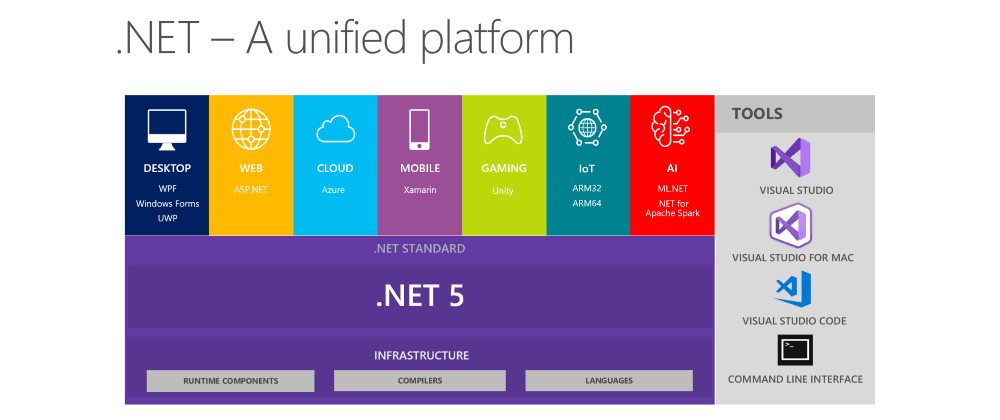Microsoft has just announced what the future of .NET will be after .NET Core 3. While won't be seen until late 2020, it does sound like a big step forward in the world of .NET.
You're not alone in wondering why the jump from 3 to 5 but their blog post has you covered:
We’re skipping the version 4 because it would confuse users that are familiar with the .NET Framework, which has been using the 4.x series for a long time. Additionally, we wanted to clearly communicate that .NET 5 is the future for the .NET platform.
What do they mean by unification? From the post:
- Produce a single .NET runtime and framework that can be used everywhere and that has uniform runtime behaviors and developer experiences.
- Expand the capabilities of .NET by taking the best of .NET Core, .NET Framework, Xamarin and Mono.
- Build that product out of a single code-base that developers (Microsoft and the community) can work on and expand together and that improves all scenarios.
Additionally...
- You will have more choice on runtime experiences (more on that below).
- Java interoperability will be available on all platforms.
- Objective-C and Swift interoperability will be supported on multiple operating
- CoreFX will be extended to support static compilation of .NET (ahead-of-time – AOT), smaller footprints and support for more operating systems.
My biggest question so far with the announcement is what will happen to .NET Standard as this seems to supersede it in terms of standardising interaction with .NET.
What are your thoughts about this announcement? Any concerns? Anything that you find especially exciting?
Make sure to read Microsoft's full post to know all the details.



















